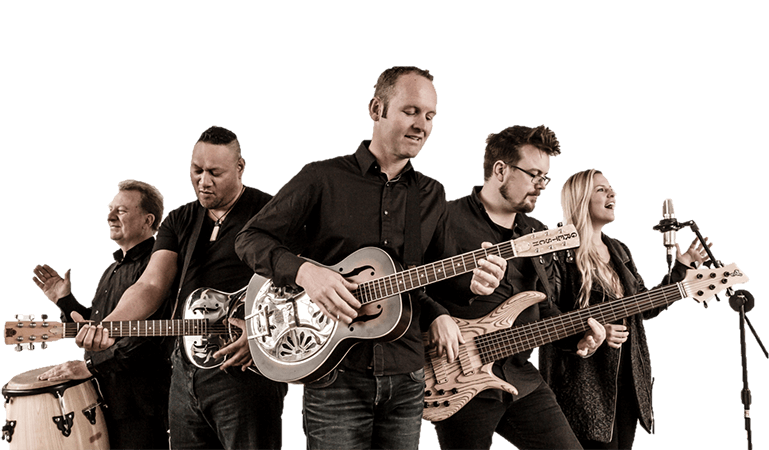Sons of Korah is an Australian based band devoted to giving a fresh voice to the biblical psalms. The Psalms have been the primary source for the worship traditions of both Judaism and Christianity going right back to ancient times. With their unique acoustic, multi-ethnic sound Sons of Korah have given this biblical songbook a dynamic and emotive new musical expression. They endeavour to lead their listeners into an impacting encounter with this book that is often described as the ‘heart’ of the bible. From lamentation to songs of jubilant praise, from battle cry to benediction, from exclamation of awe and wonder to reflections of tranquillity and perfect wisdom, Sons of Korah provide a compelling portrait of the world and experience of the psalms.
We believe that the psalms contain a particularly pertinent message for today. They are the supreme biblical portrayal of the spiritual life in all its facets and dynamics. They speak powerfully to a postmodern world that is generally more interested in what the biblical faith looks like from the inside than its abstract doctrinal expression. And for the church today the psalms present a deep and rich spiritual well for prayer and worship. The psalms were originally written as songs and they were intended to be expressed musically. The best way to meditate on God’s word is to use music and indeed this was one of dominant original purposes of the psalms. Sons of Korah invite their listeners to discover, through their music, the way in which the psalms can impact our lives today.
the band
about the name.
The name “Sons of Korah” comes from a group of Old Testament Levitical musicians to whom at least 13 of the Psalms are attributed. The original Sons of Korah were responsible for the ministry of music and song in the Old Testament worship and particularly with the musical composition and performance of the psalms.
What follows is the remarkable story of this family according to the brief records of the Bible.
The Story of the Sons of Korah is a wonderful story of God’s grace. In the Old Testament text of the Psalms reference is made to those who were involved in the composition of the psalms. Psalms 42 to 49 as well as Psalms 84 to 88 are attributed to a group known as the “Sons of Korah” (see the small print titles under the numbers of the psalms). It appears that this family of musicians were descendants of the same Korah who led a rebellion against Moses in the desert (Numbers 16). This was a serious crime that led to serious consequences for all those involved. We read that God caused the ground to open up and swallow all those who were involved in the rebellion along with their families (vs31ff).
The idea of a judgement like this that involved the wiping out of the rebels as well as their families was that the line of the rebellious should not continue in the earth. It is therefore quite surprising that in Numbers 26:11 we read the words: “The line of Korah, however, did not die out.” And sure enough as we follow the genealogies through Chronicles we see that that the line of Korah did indeed continue.
According to 1 Chronicles 6:31ff, David, when he was organising the different tasks for the temple worship, assigned the ministry of song for a large part to the Kohathites. The head of this group was Heman who is the writer of Psalm 88 and more significantly is a direct descendant of Korah the Kohathite. Hence the psalm is also attributed to the Sons of Korah.
It seems that at some point this musical family came to be called after their rebellious forefather. Korah was an infamous historical figure in the Israelite consciousness, remembered as an example of rebellion against God. To be related to him would have been a notable thing, though not necessarily a negative thing. The continuing existence of this family line was a testimony to the grace of God who, although he would be right to wipe out the memory of sinful men from the earth, is nevertheless forgiving and whose heart is always for restoration and redemption rather than for destruction. The Sons of Korah were therefore a living testimony to God’s grace. They certainly had much to sing about. We feel the same way.
